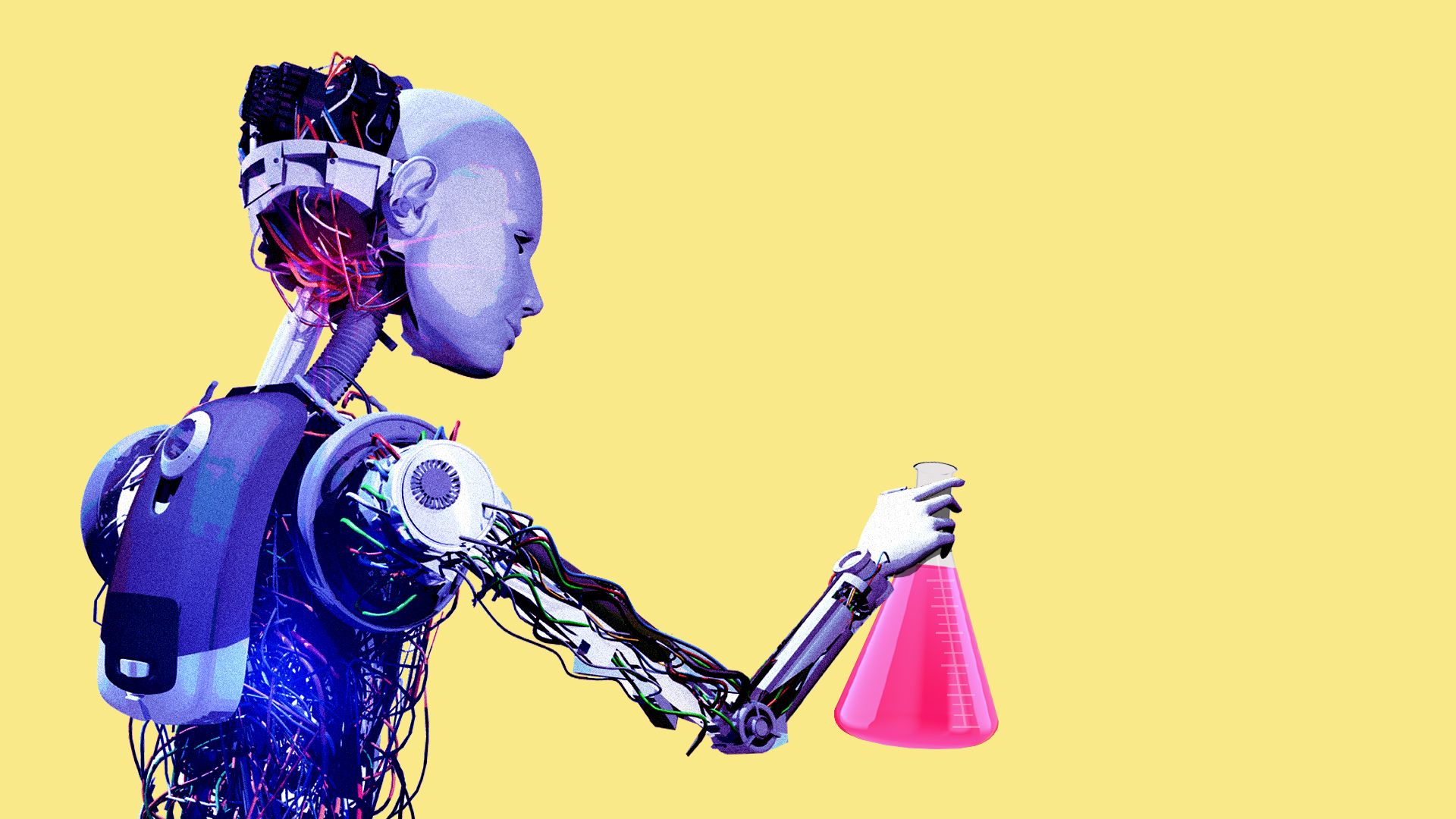
New advances are taking automation to the highest end of human endeavors, offering scientists a shot at some of the most intractable problems that have confounded them — and along the way tipping a global balance to give upstarts like China a more level playing field in the lab.
What’s going on: A combination of artificial intelligence and nimble robots are allowing scientists to do more, and be faster, than they ever could with mere human hands and brains.
"We're in the middle of a paradigm shift, a time when the choice of experiments and the execution of experiments are not really things that people do," says Bob Murphy, the head of the computational biology department at Carnegie Mellon University.
- Automated science is "moving the role of the scientist higher and higher up the food chain," says Murphy. Researchers are focusing their efforts on big-picture problem-solving rather than the nitty-gritty of running experiments.
- He says it will also allow scientists to take on more problems at once — and solve big, lingering ones that are too complex to tackle right now.
- Starting next year, Murphy’s department will offer students a master's degree in automated science, the university announced last week.
Details: Experimental science is expensive. In biology, for example, pricey equipment and labor mean that scientists can’t do all the experiments they would like. Instead, they have to prioritize the ones they think will give them the most information about the questions they are after, and then extrapolate to estimate the outcomes of the experiments they didn’t do.
- Humans are bad at choosing the best set of experiments to run. AI can create much better plans — like one that allowed the outcomes of 92% of a batch of experiments to be estimated after only 29% of them were carried out, allowing scientists to understand a problem in a fraction of the time and at much lower cost.
- Outside academia, pharmaceutical companies are using AI to extract information from academic papers and other written materials, which can surface new hypotheses to test.
- These developments won't crack every outstanding problem, but they will potentially allow scientists to vastly expand the problems they can take on.
Automating science makes it easier to do big experiments, allowing more people to participate — and potentially boosting the scientific output of countries that have traditionally trailed the U.S.
- A country racing to catch up in a scientific field needs three things, says Ahmed Alkhateeb, a Harvard molecular biologist who studies scientific automation: the latest experimental technology; an understanding of where the field stands, which allows scientists to ask the right questions; and capital and resources.
- Automation, he says, helps bring all three within reach.
This...

